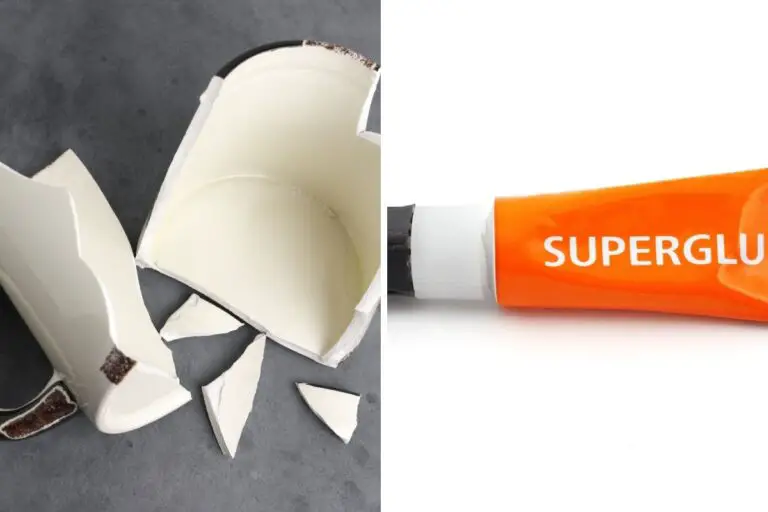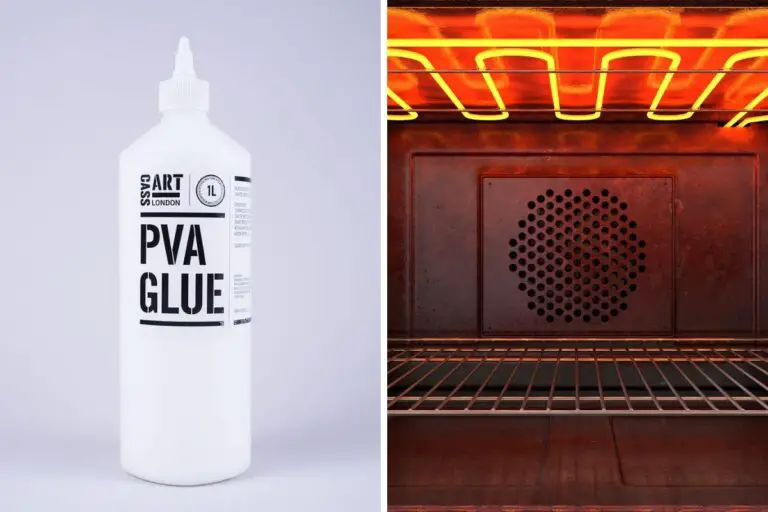Why Does Glue Smell Like Vinegar? Is it a Good or a Bad Thing?
Silicone glue is a type of adhesive that is known for its resilience and ability to bond with different materials which is why this kind of glue is used for various household applications.
However, many often complain about the glue’s extremely pungent smell as it is very similar to vinegar.
So, why does glue smell like vinegar? Glue will smell like vinegar because it’s made from silicone polymers as well as other chemical substances. While the glue is curing, the chemical substances will start reacting and form acetic acid which smells exactly like vinegar. The vinegar smell will remain until the glue is completely dried and cured.
Continue reading to learn more about silicone glue and how to get rid of the vinegar smell of glue.
Contents
What Is Silicon Glue?

Silicone glue is a kind of adhesive that’s made from polymerized silicone mixed with other chemical substances and solvents to stabilize the glue and keep it in a liquid form.
This kind of glue has some special properties that make it a resilient adhesive. It’s very durable and doesn’t get affected by changes in temperature. It’s also resistant to water and elastic, so it can be used to bond various materials including plastic, metal, glass, and ceramic.
Why Does Silicone Glue Smell Like Vinegar?
Different kinds of glue produce different smells depending on the chemical compounds and solvents they contain
Latex-based glue is mainly made of silicon polymers which give the glue its adhesive properties as well as its distinctive vinegar smell. That is because silicon polymers react with other chemical substances while the glue is curing.
This reaction will produce acetic acid which is the main chemical component of vinegar. The smell of the acid will be released in the air and can last for about 12 to 24 hours, depending on how fast the glue dries and cures.
Did you know that glue can also smell like fish? Learn why some glue will smell like fish and what it means here.
How Does Glue Cure?
The glue will dry and cure completely when all of the solvent substance it contains evaporates.
All kinds of glue contain chemical solvents that are responsible for keeping the glue in liquid form when it’s inside its container.
When the glue is applied on a surface, the solvent will evaporate as it’s exposed to air while the base adhesive components of the glue will bond with the surface causing the glue to stick.
How to Get Rid of the Vinegar Smell in Glue?
Unfortunately, there’s no way for you to completely get rid of the vinegar smell in glue as it comes from its chemical composition.
However, here are some ways you can use to reduce the severity of the smell and prevent it from building up in the room until the glue is completely dried and cured:
- Always work in a well-ventilated area. Keep all the windows open to allow more fresh air in. You can also place one or two in the room to improve air circulation and also speed up the curing process.
- If you’re not using the glue, make sure to keep the container tightly sealed to prevent the glue from reacting and producing the vinegar smell.
- Use an air purifier in the room to absorb the smell and reduce its severity. It’s recommended to use an air purifier with a carbon filter as it can absorb more of the smell in a short time. Make sure to change the filter regularly because once it is saturated, it will begin releasing the smell back into the air.
- Use other natural smell absorbers such as baking soda or smashed charcoal to reduce the severity of the smell. You can put the absorbers in an open container and leave them in the room where the glue is curing for about 12 hours. For an enhanced effect, it’s a good idea to place more than one container in the room and replace the absorbers every few hours.
Related Question
What Happens If Silicone Glue Gets Wet Before It Cures?
If silicone glue gets wet before it completely cures, it will not be as effective as intended. This means that it will take longer for the glue todry and cure. Also, it will not create a strong bond with the surface it is applied to. In that case, you might have to remove the glue and re-apply it.
You can learn how to make wet glue dry again here.
How to Speed Up the Process of Curing Glue?
To speed up the process of curing glue, it’s recommended to use heat to dry the project faster. You can place the glued object in the sun or you can use a heater to increase the room temperature. It’s also a good idea to open the windows to improve the circulation in the room.
How to Remove Silicone Glue?
You can remove silicone glue by applying a small amount of acetone or isopropyl rubbing alcohol on the glue spot and leaving it for about 10 minutes. The acetone or isopropyl rubbing alcohol will dissolve the silicone and soften its bond with the surface making it easier to wipe or scrape off.
Helpful Resources
If you like this article, share it!

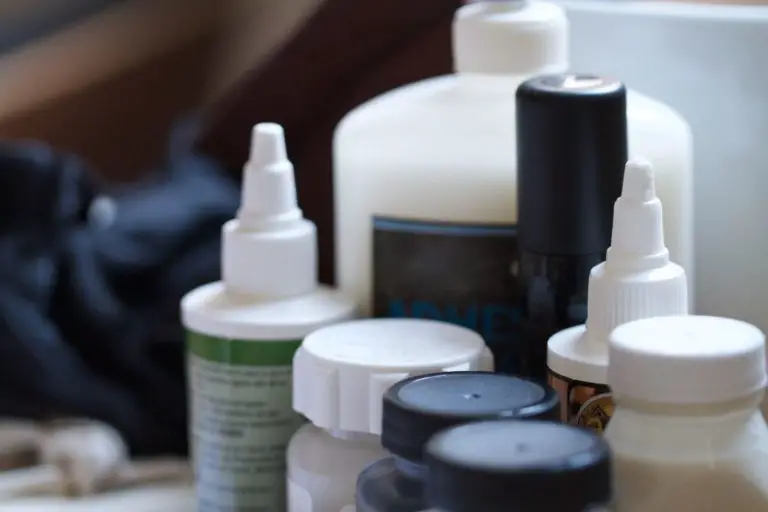
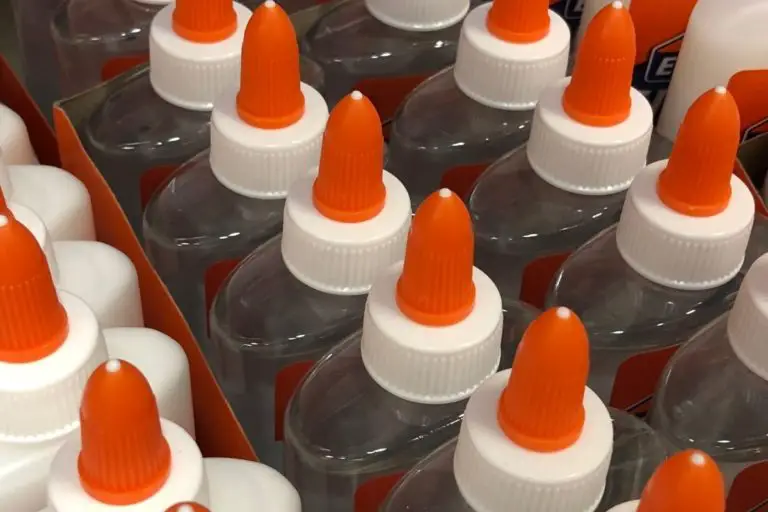
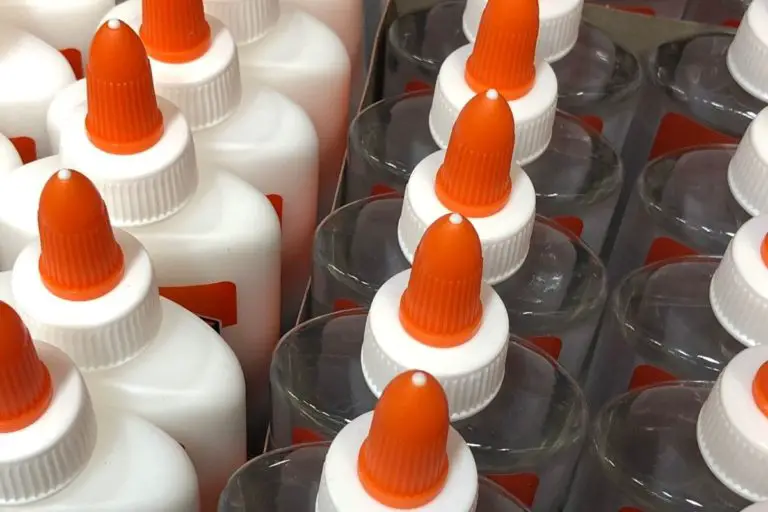
![When to Glue Drywall to Studs? [And The Correct Way to Do It]](https://simpleglue.com/wp-content/uploads/2021/11/drywall-to-studs-768x512.jpeg)
